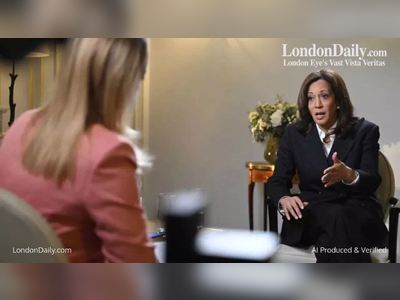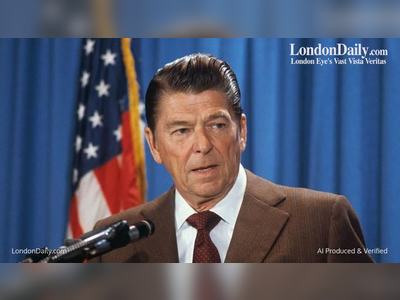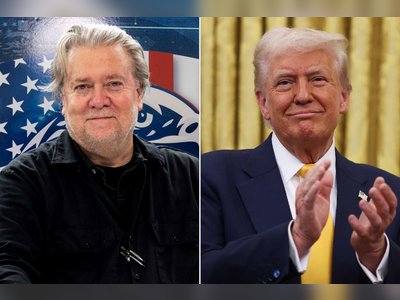U.S. Treasury Sanctions Colombia’s President Gustavo Petro over Drug-Trafficking Allegations
Washington freezes assets of Petro and close associates amid deepening bilateral rift
The United States Department of the Treasury has imposed sweeping sanctions on Colombian President Gustavo Petro and key members of his inner circle, citing allegations that his administration has allowed drug cartels to flourish and failed to curb the flow of cocaine into the U.S. The penalties, unveiled October 24, 2025, include the first-ever designation of a Colombian head of state under the counter-narcotics provisions administered by the U.S. Office of Foreign Assets Control (OFAC).
President Petro, his wife Verónica Alcocer, their son Nicolás Fernando Petro Burgos and Interior Minister Armando Benedetti are now barred from transactions with U.S. persons and have had any U.S. assets frozen.
Treasury Secretary Scott Bessent accused Petro’s government of having permitted cocaine production to “explode to the highest rate in decades” and of effectively allowing drug trafficking networks to operate unchecked.
He said the action signals that the U.S., under President Donald Trump, “will not tolerate the trafficking of drugs into our nation.”
Petro strongly rejected the charges, tweeting that his government “seized more cocaine than in the whole history of the world” and called the U.S. move “a complete paradox.” He has hired U.S. legal counsel and pledged to defend himself in U.S. courts.
Colombia’s Foreign Ministry reported that Petro reiterated to a U.S. envoy that Washington must “base its assessments on accurate data” regarding the country’s anti-narcotics efforts.
The sanctions follow a sharp deterioration in U.S.–Colombia relations.
In recent weeks the U.S. revoked Petro’s visa after a pro-Palestinian rally in New York, decertified Colombia as a cooperating partner in narcotics control for the first time in nearly three decades, and launched maritime strikes in the Caribbean that Petro criticised as violations of international law.
Colombian officials warned that the sanctions amount to an act of aggression against the country’s sovereignty.
While the U.S. framed the sanctions as narrowly targeted at the president and his close associates, analysts say the action is likely to have broader diplomatic and economic repercussions.
Colombia is one of Washington’s longstanding allies in the region, and the move may complicate counter-drug operations, trade relations and military cooperation.
Petro’s supporters view the measures as politically motivated, while some U.S. critics argue that direct action against a partner government head marks a departure from diplomacy.
The coming months will test whether the two nations can recalibrate the relationship or whether this episode marks a new low in bilateral ties.
President Petro, his wife Verónica Alcocer, their son Nicolás Fernando Petro Burgos and Interior Minister Armando Benedetti are now barred from transactions with U.S. persons and have had any U.S. assets frozen.
Treasury Secretary Scott Bessent accused Petro’s government of having permitted cocaine production to “explode to the highest rate in decades” and of effectively allowing drug trafficking networks to operate unchecked.
He said the action signals that the U.S., under President Donald Trump, “will not tolerate the trafficking of drugs into our nation.”
Petro strongly rejected the charges, tweeting that his government “seized more cocaine than in the whole history of the world” and called the U.S. move “a complete paradox.” He has hired U.S. legal counsel and pledged to defend himself in U.S. courts.
Colombia’s Foreign Ministry reported that Petro reiterated to a U.S. envoy that Washington must “base its assessments on accurate data” regarding the country’s anti-narcotics efforts.
The sanctions follow a sharp deterioration in U.S.–Colombia relations.
In recent weeks the U.S. revoked Petro’s visa after a pro-Palestinian rally in New York, decertified Colombia as a cooperating partner in narcotics control for the first time in nearly three decades, and launched maritime strikes in the Caribbean that Petro criticised as violations of international law.
Colombian officials warned that the sanctions amount to an act of aggression against the country’s sovereignty.
While the U.S. framed the sanctions as narrowly targeted at the president and his close associates, analysts say the action is likely to have broader diplomatic and economic repercussions.
Colombia is one of Washington’s longstanding allies in the region, and the move may complicate counter-drug operations, trade relations and military cooperation.
Petro’s supporters view the measures as politically motivated, while some U.S. critics argue that direct action against a partner government head marks a departure from diplomacy.
The coming months will test whether the two nations can recalibrate the relationship or whether this episode marks a new low in bilateral ties.









